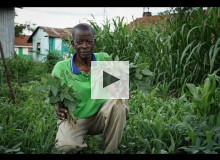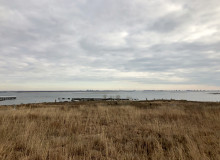Featured Stories
Planet Forward Correspondent | Reed College
In 1957, Monsanto’s House of the Future predicted what living in 1986 might be like. Made almost entirely of fiberglass and plastic, where is the house now?
Founding Director, Planet Forward
This year’s Storyfest Awards weren't announced from the stage at the Planet Forward Summit as usual, in the name of social distancing. But we still wanted to share with you the amazing stories entered by students from every region of the country.
Planet Forward Senior Correspondent
Here are five easy, innovative, and free ways that students can reduce their impact on the environment right now, by using the technology that is at their fingertips.
Planet Forward Senior Correspondent | American University
Understanding birds is the first step toward avian species conservation, and bird banding improves our knowledge of birds' migration patterns and life histories.
Digital Editor, Planet Forward
Here are our key takeaways from TV media experts on how to create lasting climate communication that won’t get washed away in the rising tides.
Planet Forward Correspondent | University of Mississippi
Planet Forward founder Frank Sesno shares what motivated him to transition from CNN stalwart to champion and educator of the next generation of environmental storytellers.
Planet Forward Senior Correspondent
Francis Wachira shows it is possible to end hunger and fight climate change through urban farming in Nairobi, Kenya.
Planet Forward Correspondent | SUNY-ESF
Shirley Chisholm State Park is New York City’s “New York City's nicest park built on top of a toxic waste dump,” and in this podcast, I detail the who, what and wheres of the Park, including its namesake, history, and cultural significance.
Planet Forward Senior Correspondent
The border wall threatens over 100 endangered species; can activists unite and stop its construction in Organ Pipe Cactus National Monument?
Planet Forward Senior Correspondent | New York University
Bhutan, a small nation located in the Himalayan mountains, offset its carbon emissions more than what it produces (AKA carbon negativity) because of four key policy decisions.

.jpg%3Fitok=Ht5ZrgIZ)







